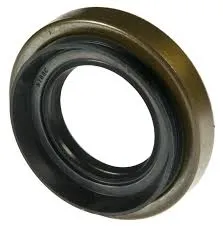10 月 . 31, 2024 19:30 Back to list
High Temperature Resistant Oil Seals for Enhanced Performance and Durability
Understanding High-Temperature Oil Seals Importance and Applications
In various industries, the functionality and longevity of machinery depend significantly on the components used to maintain its integrity, especially at high temperatures. One crucial component that plays a vital role in such scenarios is the high-temperature oil seal. These seals are designed to prevent the leakage of lubricants and fluids in environments where thermal conditions pose a challenge to conventional sealing materials.
What are High-Temperature Oil Seals?
High-temperature oil seals are specialized sealing devices made from advanced materials that can withstand elevated temperatures, often exceeding 200°C (392°F). They are typically used in applications where equipment operates under extreme conditions, such as in automotive engines, industrial machines, and aerospace applications. The primary function of these oil seals is to contain lubricants, prevent contamination, and reduce friction, thereby enhancing the overall efficiency and lifespan of machinery.
Materials Used in High-Temperature Oil Seals
The effectiveness of high-temperature oil seals heavily relies on the materials from which they are manufactured. Common materials include
1. Fluoroelastomers (FKM) Known for their excellent thermal stability and chemical resistance, fluoroelastomers are widely used in high-temperature applications. They can maintain their sealing properties in harsh environments, resisting oils, fuels, and other chemicals.
2. Silicone Rubber Silicone seals can handle various temperature extremes and are flexible, making them ideal for dynamic applications. They are often used in automotive seals where heat and exposure to oils are prevalent.
3. PTFE (Polytetrafluoroethylene) This material stands out for its exceptional chemical resistance and ability to perform at high temperatures. PTFE is non-stick, reducing the surface friction, and is suitable for use in applications where minimal lubrication is required.
high temperature oil seal

4. Metallic Composites In some applications, metal is used in conjunction with rubber or other elastomers to provide strength and thermal resistance. These are typically used in environments where mechanical stresses are significant.
Applications of High-Temperature Oil Seals
High-temperature oil seals are critical components in numerous sectors, including
- Automotive Industry In engines, transmissions, and differentials, high-temperature seals ensure efficient operation by containing lubricants while protecting against environmental contaminants.
- Manufacturing and Machinery Industrial machinery often operates under intense heat and pressure; thus, high-temperature oil seals are essential for maintaining equipment performance and minimizing downtime.
- Aerospace The aerospace industry demands the highest reliability in components. High-temperature oil seals are employed in various applications, including fuel systems and engine components, to ensure safety and efficiency.
- Energy Sector In oil and gas drilling operations, where machinery is exposed to extreme temperature variations and harsh chemicals, durable oil seals are necessary to maintain system integrity.
Conclusion
High-temperature oil seals are indispensable in maintaining the performance and reliability of machines operating in demanding environments. By utilizing advanced materials capable of withstanding heat and chemical exposure, these seals ensure the efficient operation of various industrial and automotive applications. As technology advances, the development of even more resilient sealing solutions will likely continue, meeting the ever-increasing challenges faced by modern machinery. Understanding these components' critical roles allows engineers and technicians to make informed decisions when designing systems for high-temperature operations, ultimately contributing to enhanced performance and reduced maintenance costs.